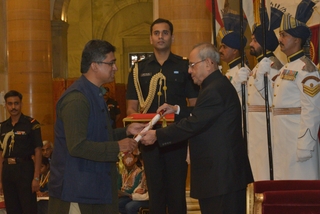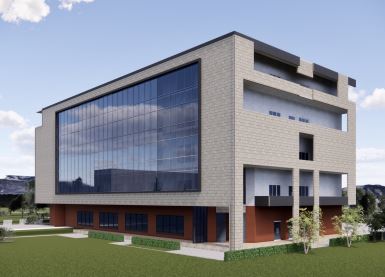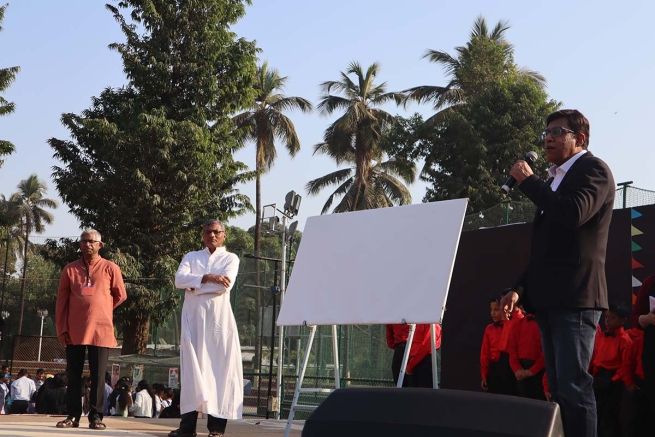INDIA: Indian Government Awards Salesian-run BOSCO Bangalore the 2014 National Award for Child Welfare

(MissionNewswire) The Salesian-run Bangalore Oniyavara Seva Coota (BOSCO), received the 2014 National Award for Child Welfare (under the institution/organization category) from the Ministry of Women and Child Development of the government of India. BOSCO, located in Bengaluru (formerly Bangalore), the capital of the Indian state of Karnataka and third-most populous city in India with over 8.4 million residents, was recognized for its decades-long outstanding service in the field of child welfare for marginalized children.
The organization serves child laborers, victims of child abuse and youth who are orphaned, abandoned or live on the streets at nine BOSCO rehabilitation centers and six outreach hubs spread throughout the city. In its 35 year history, BOSCO has helped improve the lives of more than 125,000 children and rescues and rehabilitates close to 7,000 children each year. In 2014, BOSCO volunteers rescued 6,451 runaway youth and were able to reunite 4,681 of them back with their families. Those remaining are under the care of India’s Child Welfare Committee. Of the youth rescued, there were 5,561 boys and 900 girls, the majority of whom were between the ages of 6 and 16 with 75 of the children under age five.
Many children living on the streets are runaways who have left home in search of work or to escape violence or other family difficulties. According to UNICEF, more than 40,000 children are reported missing every year in India. Of these, close to 11,000 remain untraced. As many cases go unreported, it is suspected that the actual number of missing children is much higher. Many runaways come to major cities like Delhi, Mumbai, Kolkata and Bengaluru in search of work and a better life with the majority of them living on the streets and on the country’s railway platforms where they beg, steal or perform menial jobs to survive. All too often, they fall victim to child traffickers.
In 2010, India passed a landmark law mandating that all children between the ages of 6 and 14 be in school, but according to UNICEF, millions of children remain in the workforce. Full implementation of the law went into effect in 2013, but child workers can still be found in almost every industry in India. The problem has been enforcing the law, particularly in high poverty regions of the country.
Once youth are identified by BOSCO and convinced to come in off the street, their basic needs are provided for such as housing, food and clothing. In addition, they receive counseling and, if appropriate, are reunited back with their families. Education is also a primary component of BOSCO and is provided to those in the rehabilitation program while those who are returned to their families have access to Salesian schools throughout India. Youth who continue their education are more likely to find and retain stable employment later in life and break the cycle of poverty.
“Salesian missionaries in India are working hard to rehabilitate street children and restore their childhoods,” says Father Mark Hyde, executive director of Salesian Missions, the U.S. development arm of the Salesians of Don Bosco. “Many take for granted having a safe place to sleep, enough food to eat and access to medical care. Salesian missionaries recognize how critical it is to meet these basic needs before expecting youth to be able to focus on education.”
BOSCO is also involved in child rights education in schools, colleges, and for the general public and has made significant contributions towards the development of government policies for the protection of children. In addition, BOSCO has been running the Childline Youth Hotline since 2002. This hotline is a safety net for youth on the streets and connects them to safe shelter and other services. Salesian missionaries collaborate extensively with the Indian government and child protection system by providing training, advocacy and outreach program development to help reduce the number of street children while sharing resources for finding, identifying and rehabilitating those currently living on the streets.
India is home to 25 percent of the world’s poor and more than 30 percent of the country’s population lives in poverty, according to the World Bank. With the largest number of child laborers in the world, India has made significant progress the past eight years reducing the number of out-of-school children from 25 million to 8 million. However, an estimated 11 million children live on the streets facing the daily horrors of rampant exploitation, forced labor, widespread substance abuse and physical violence. Many poor youth see little opportunity or hope for a better life.
###
Sources:
Bangalore Oniyavara Seva Coota
Don Bosco India – Government of India names BOSCO, Bangalore the best NGO for Child Welfare
UNICEF – State of the World’s Children 2012
World Bank – India




